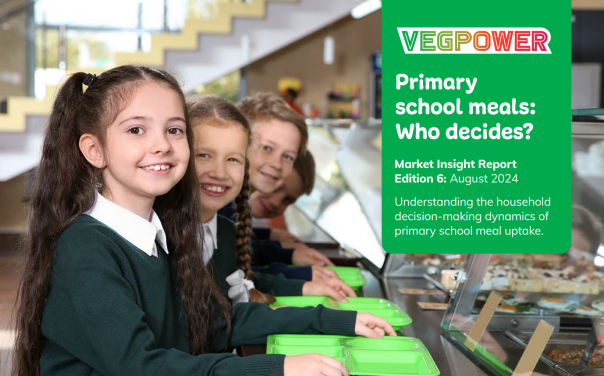
The survey, which involved 3,000 parents and carers from across the UK, explored the human factors behind the decision making process and was undertaken to help uncover new insights that will support further uptake of school meals, regardless of their cost to families or the Government.
The survey found that across the UK, children influence over 60% of the decisions around having school meals. Almost a third (32%) are made solely by the parents or carer, 28% just by the child and 39% jointly. In families in which the parent is the sole decision-maker, children were much more likely to have school meals.
The survey revealed that 26% of children rarely or never have a school meal. Under half (43%) of parents of children who never have a school meal said that would change if they were free.
However for 10–15% of all primary-aged children, as many as one million children, the challenge runs deeper than cost alone. Over half (54%) said they preferred a packed lunch to school food. Yet only 1.6% of packed lunches meet the Government’s school food standards.
The survey also found:
- Across all age groups, average consumption is 3.1 school meals per week. This figure declines sharply as children get older, with pupils aged 11 eating (on average) one less school meal per week than those aged five or six.
- At age five, 11% of children never have a school meal and 6% have only one a week. By the time they’re 11, these numbers have jumped to 25% and 11% respectively.
- Among those who eat a school meal at least once a week, children who are entitled to a free meal eat 4.2 meals per week on average against 3.2 meals per week if the parent has to pay.
- Children in families where household income is between £30,000 and £60,000 per annum eat notably fewer school meals than other income groups.
Dan Parker, chief executive at Veg Power, said: “This report highlights the many reasons why some families choose not to take up school meals, even when they’re free. By understanding these reasons and continuing to try new solutions, we can ensure as many children as possible are making the most of the benefits associated with eating a school meal.
“We believe that universal free school meals should be available to all primary schoolchildren. The evidence supports this – not only in terms of nutritional content but the impact it has on children’s learning. If funding all families is economically impossible, we also believe the eligibility threshold should be revisited to enable the ‘squeezed middle’ to benefit.”
Veg Power’s recommendations include:
- Fully supporting an increase in access to universal free school meals across the UK to all primary schoolchildren and if this cannot be implemented immediately, eligibility should be dramatically extended to include lower and lower-middle earners.
- ‘Per meal’ funding should be increased to a minimum of £3.00, index linked and ringfenced. Veg Power says we must give caterers the opportunity to serve the food our children deserve.
- Improve the school food culture to help drive demand. School lunchtimes should be social, culture-building experiences that children don’t want to miss. In parallel, emphasis must be placed on offering greater variety and choice and on developing mechanisms that give primary schoolchildren a say in menu design.